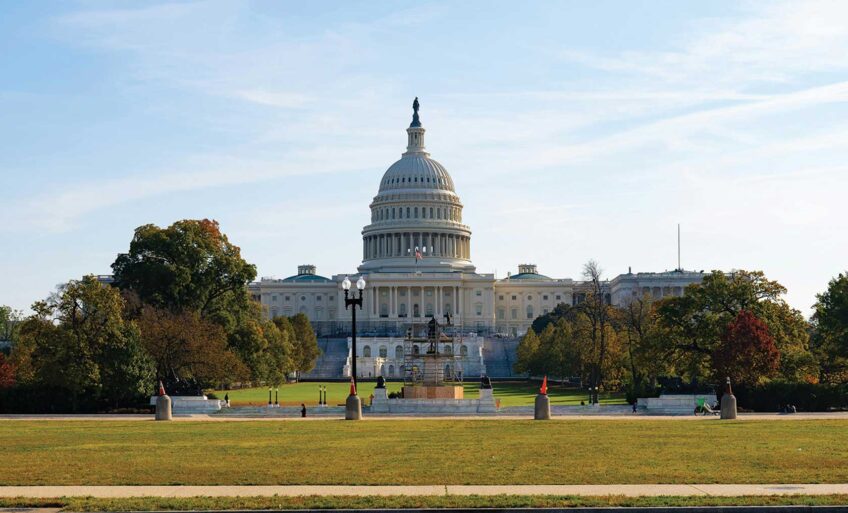Both the Harris and Trump campaigns must understand that diverse cannabis voters are looking for a president who supports legalization with equity. A diverse cannabis industry built on fairness can generate wealth and help address the harms caused by past policies. The industry also offers opportunities in AgTech, clean energy and cannabis tourism, which can drive growth in key states. In a new poll released Aug. 31 by Ragnar Research, undecided voters in key swing states like Pennsylvania, Michigan and Wisconsin strongly support marijuana reform, with 84% of respondents favoring medical cannabis and 62% backing broader adult-use legalization.
Today, the cannabis industry represents an unprecedented opportunity for change. Forecasts predict it could reach $72 billion by 2030, with the potential to create over 500,000 new jobs by 2025. However, for this industry to truly thrive, it must be built on inclusion and diversity. Both the Republican and Democratic parties need to recognize how critical cannabis legalization is to multicultural communities and women, particularly in key swing states.
Cannabis legalization is not merely a policy issue, but a significant electoral issue. In states like Michigan, Pennsylvania and Florida, diverse voting blocs will play a crucial role in the next election. More than 68% of Americans support cannabis legalization, and advocates in these swing states represent a significant portion of the electorate. Women, who make up 51% of the U.S. population, along with Hispanic, Black, Asian and Native voters, are pivotal in deciding the future of cannabis reform.
Growing up in a lower-income community, I witnessed firsthand the profound impacts of the war on drugs. The devastation it wrought on families, neighborhoods and entire communities was staggering. Homes were torn apart, opportunities vanished and lives were derailed by a system that criminalized cannabis use and disproportionately targeted Black, brown and Native communities. For far too many, the future seemed bleak as incarceration, economic hardship and systemic neglect crushed any hope for a better life.
Cannabis is more than just a plant; it’s a global economic powerhouse. With 100% of U.S. population growth now multicultural, many in these communities are seeking new career paths within the cannabis industry. The 2020 Citi Report revealed that the U.S. has missed out on $16 trillion in economic growth over the past two decades due to discriminatory practices. Cannabis represents an opportunity to unlock much of this potential. By creating pathways for minority and women entrepreneurs, we can tap into unrealized growth that benefits the entire U.S. economy.
“For women of color, the cannabis industry represents empowerment, economic independence and generational wealth,” said Veronica Castillo, board member of the Minority Cannabis Business Association. “Full inclusion is crucial for our success and the advancement of entire communities.”
Hope Wiseman, co-founder and CEO of WISECO, said, “My mother always taught me to look for opportunities to build wealth for our family and, more importantly, to share that knowledge with others. I truly believe the cannabis industry can serve as a gateway for Black entrepreneurs to begin their wealth-building journey, providing the resources and opportunities necessary to uplift entire communities.”
I have seen firsthand how the cannabis industry can create jobs, revitalize communities and provide new opportunities for success. For the industry to reach its full potential, women, Black, brown, Asian, Native and other underrepresented communities need access to ownership, employment and leadership opportunities.
While the industry is expanding, it must also work to reverse the negative impacts of the war on drugs, especially for Black, brown and Native communities. Black Americans are four times more likely to be arrested for cannabis possession than white Americans, despite similar usage rates. As we build the future of cannabis, we must focus on criminal justice reform and invest in programs supporting those most affected.
The cannabis industry is uniquely positioned to drive both economic and social change. The party that champions a diverse and equitable approach to cannabis legalization will earn the loyalty of key voter groups. By involving women, Black, brown, Asian, Native and other underrepresented communities at every level, we will unlock the full potential of this industry. The future of cannabis is bright, but it will be even brighter when everyone has a seat at the table.
For both Republicans and Democrats, supporting cannabis legalization isn’t just good policy — it’s smart politics. The party that embraces inclusivity will gain a crucial edge in key swing states. Let’s seize this moment to create an industry that not only generates wealth but also heals past wounds and builds a future of opportunity for all.
Reginald Alston is a successful cannabis entrepreneur and a leading advocate for inclusion in the industry.






